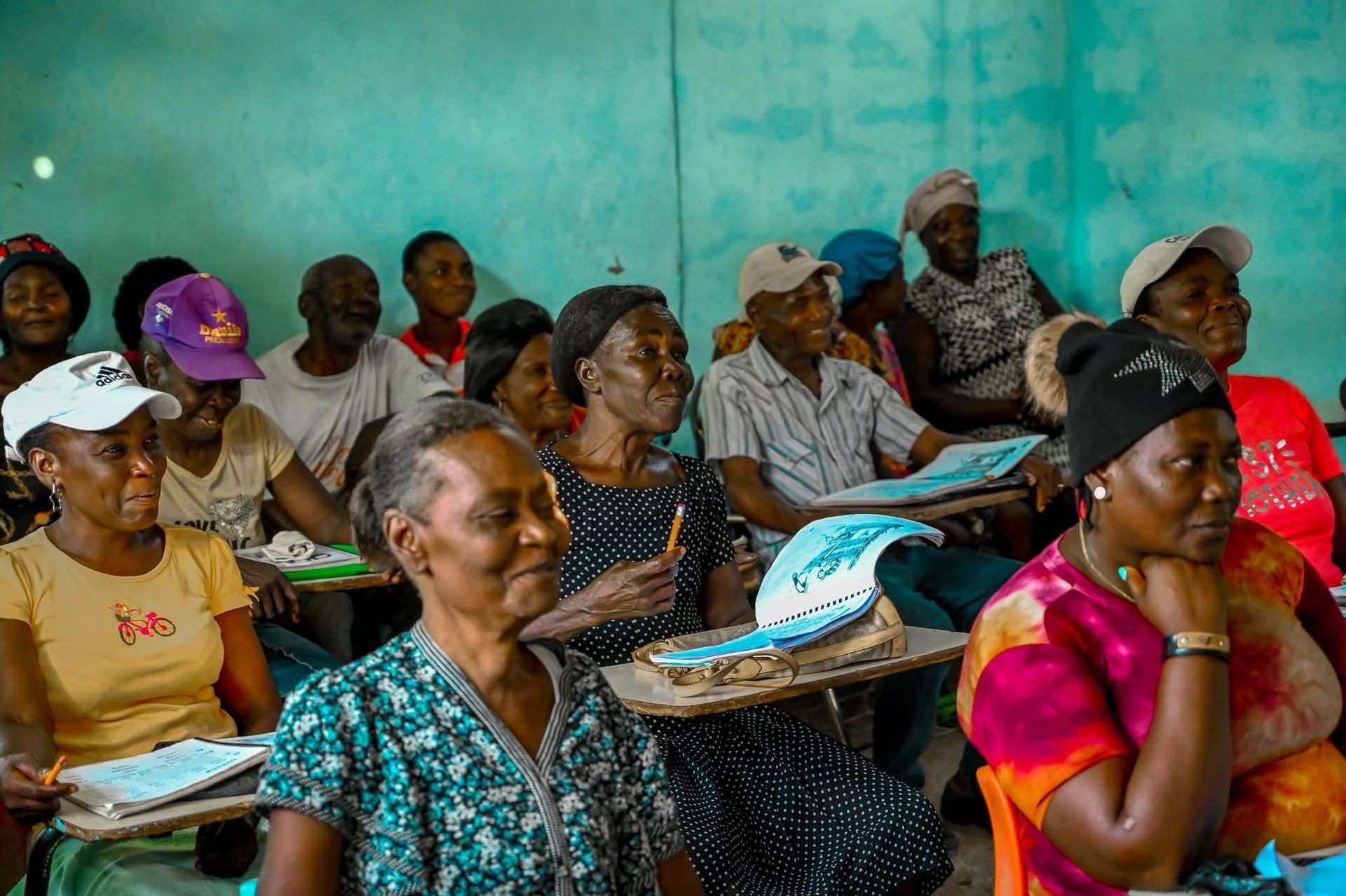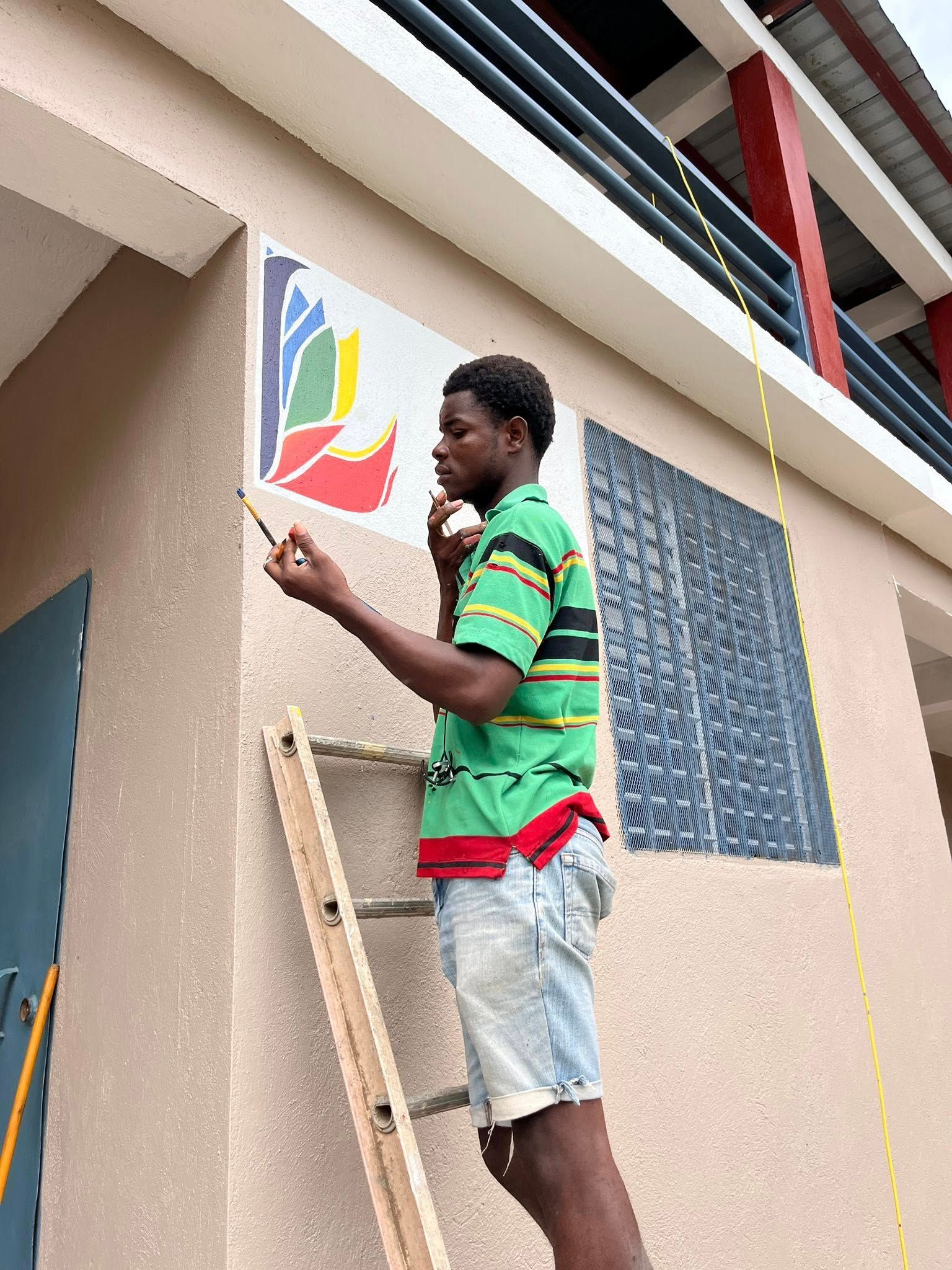From a union leader to a real changemaker
From a union leader to a real changemaker: A teacher union leaders’ journey to combating absenteeism amongst girls through sustained menstrual health solutions in Ghana schools
Governments and society in general focus on the seemingly big and more conspicuous issues when it comes to eliminating all forms of discrimination in education, but lurking behind these issues is a silent barrier that is preventing many young girls from taking full advantage of the free compulsory education being offered by the government of Ghana.
In the bustling classrooms of Ghanaian schools, menstruation and its associated stigma and lack of access to proper menstrual health solutions is causing lots of adolescent girls to absent themselves from schools during that time of the month thereby losing very important learning time. When one looks at the cumulative loss of learning hours over a period of a year and even throughout the school going age of the girl, it becomes more evident that the girl is at a disadvantage if she doesn’t have access to period products.
I was hit by this reality when I chanced upon some girls chatting. I heard how some of them used papers from discarded cement paper bags and iced water rubbers etc. as pads. I was not only shocked but began to imagine how unhealthy this was and the possibility of infections. I started to dig deeper into the issue and realized that girls absenting themselves from school was the least of the consequences; some girls get pregnant in their bid to access money from boys or men to purchase period pads.
One period pad in Ghana costs more than the daily minimum wage thereby making it very expensive for most families to be able to buy pads for their girls. Determined to make a difference, I began looking for a solution that would enable girls to manage their periods with dignity and ease; allowing them to attend school regularly was the way to go.
Linking up with the Steve Sinnott Foundation through the General Secretary of the Gambian Teachers Union (Mrs. Antoinette Corr) has been a breath of fresh air. The support from the foundation has helped to put our ideas into action and has given the girls confidence that they can have their periods and go to school at the same time.
NAGRAT, with the help of The Steve Sinnott Foundation, set out to teach female teachers and girls in Ho (Volta region of Ghana) about menstrual health, learn to make re-usable period pads and talk safely about school related gender base violence (SRGBV), but we got more than that. The experience has ignited a fire in us as union leaders to give as much attention to the needs of the learners (especially girls) as we do for our colleagues.
As I write this article, I am reflecting on all that could have gone wrong for me when I was a young girl having come face to face with the reality of our girls today.
The team was pleasantly surprised at the immediate impact of our intervention on the participants and the rippling effect it would have on them, their siblings, neighbours and future children. As we talked with the girls and answered their numerous questions three comments in particular caused me to think and to reflect.
- “Why is this not taught in school”
- “My mother will be happy to see this because she will not
- have to credit pads for me again”.
- “I wish all the girls in my class were here”.
The team invited teachers and students from ten schools but from the second day twenty-one schools were participating. This gives a clear indication of the widespread need for this intervention and obviously how important it is to reach out to other communities. The second and third day of training witnessed the participants’ unwillingness to go on breaks because they were so engrossed in the sessions. As I conclude this write up, I am thinking about what we could have achieved if we had stepped into this much earlier bearing in mind the powerful effect that teachers have on their learners.
Bigraphy
Rebecca Ocran Abaidoo is the Gender coordinator (National Association of Graduate Teachers) Ghana, has been a teacher since 1997, and a union leader at regional and national levels since 2009.




